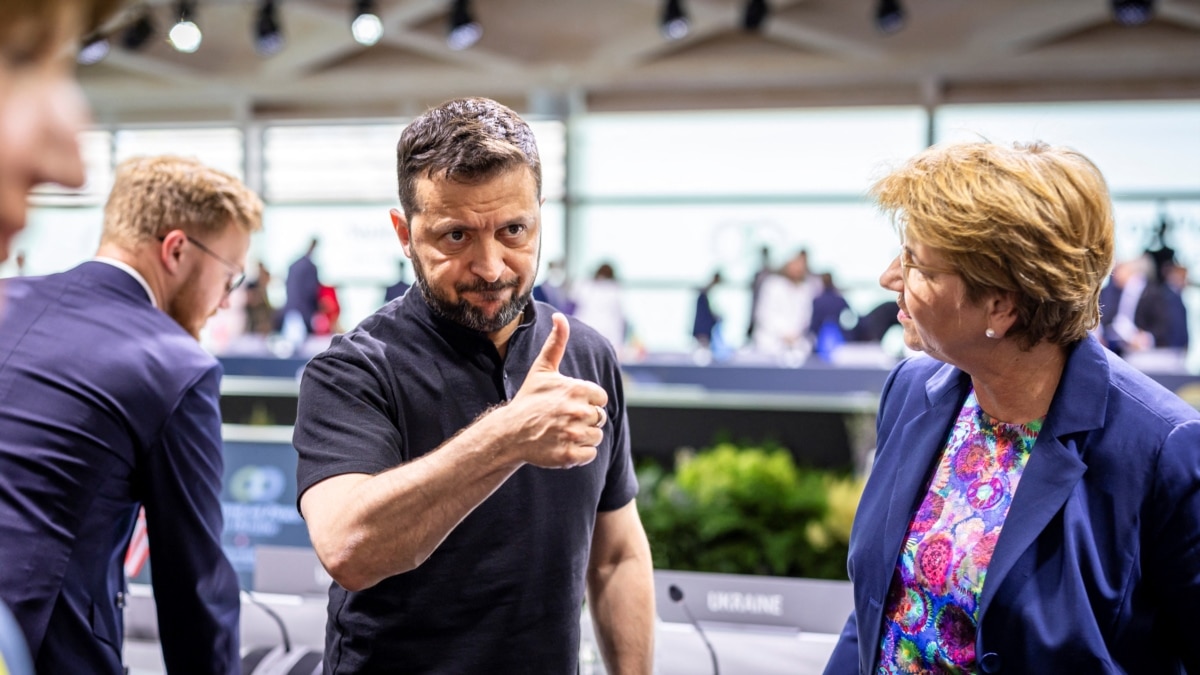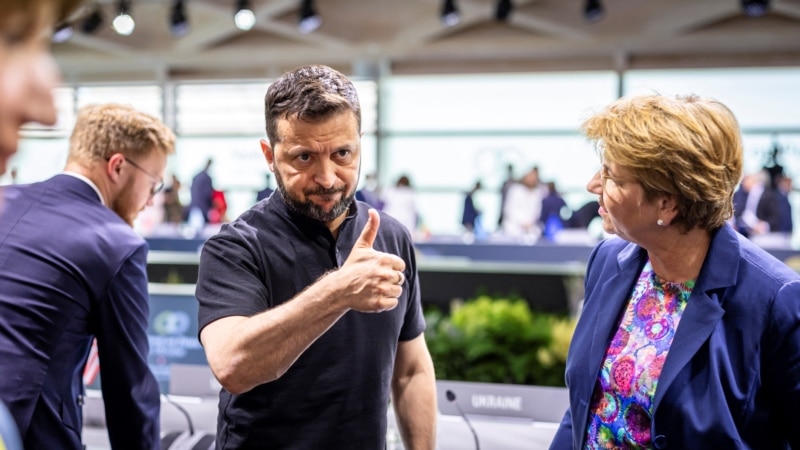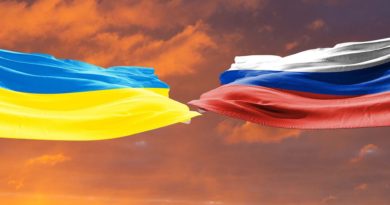Ukraine was willing to negotiate peace, but Moscow’s demands went too far

At the two-day Summit on Peace in Ukraine, held in Switzerland, 78 countries signed a document saying Ukraine’s territorial integrity should be a basis for a peace agreement between Moscow and Kyiv.
Russia, which did not participate in the international summit, had earlier set Ukraine’s ceding of territory occupied by Moscow — and some territory Russian forces do not control — as a precondition to begin peace talks.
Analysts said Russia is demanding Ukraine’s “capitulation” as a prerequisite for negotiations.
But Russia maintains that it is Ukrainian President Volodymyr Zelenskyy, and allies, who are thwarting peace efforts.
On July 17, Russia’s ambassador to the United Nations, Vassily Nebenzia, raised a draft peace treaty between Russia and Ukraine from 2022, which he claimed was scuttled at the behest of former U.K. Prime Minister Boris Johnson.
“The only logical conclusion that we made as a result is that the Zelensky regime is incapable of negotiations.”
That is false.
The New York Times published a draft treaty, which Russia and Ukraine negotiated directly from February to April 2022; it proves that Moscow, not Kyiv, sabotaged the peace prospects.
The Times spoke with more than a dozen Russian, Ukrainian and Western officials close to the talks.
Oleksandr Chalyi, a member of the Ukrainian negotiating team, told the Times they were very close to reaching a “peaceful settlement” by the end of April 2022.
While there were sticking points, both sides appeared open to compromise on the status of Ukraine’s occupied Crimean Peninsula, Ukraine’s potential accession to the European Union, caps on the size of Ukraine’s military and the types of armaments it could possess, and a removal of sanctions on Russia.
Ukraine likewise was open to forgoing membership in the North Atlantic Treaty Organization and becoming a “permanently neutral state” that would never allow foreign troops to be based on its territory.
The repulsion of Russian forces from Kyiv in April 2022 altered Ukraine’s negotiating calculus. Russia’s early failures boosted Ukraine’s morale and galvanized international support. Johnson’s April 9 visit to Kyiv underscored the development with the promise of military aid to help Ukraine “fight against Russia’s brutal and unprovoked invasion.”
Johnson reportedly told Zelenskyy that Putin is a war criminal who should be pressured, not negotiated with, fueling claims by Nebenzia and others that the former British prime minister sank the peace deal.
Still, there was no agreed-up ceasefire deal for Johnson to scuttle, while the actions of Russian forces arguably made Ukrainians less willing to negotiate.
After the battle of Kyiv ended with the withdrawal of Russian forces on April 2, a wealth of evidence emerged of Russian troops’ massacres in Bucha and other cities and towns in the Kyiv region.
Zelenskyy called Russia’s actions “a genocide,” and international watchdogs accused Moscow of war crimes hampering the talks. Yet Zelenskyy did not give up on negotiations.
However, one hurdle could not be overcome.
As part of a negotiated settlement, Kyiv sought a security mechanism whereby its allies would be treaty-bound to intervene militarily if Russia invaded Ukraine again.
But, “Russia inserted a clause saying that all guarantor states, including Russia, had to approve the response if Ukraine were attacked. In effect, Moscow could invade Ukraine again and then veto any military intervention on Ukraine’s behalf — a seemingly absurd condition that Kyiv quickly identified as a dealbreaker,” the Times reported.
One member of the Ukrainian negotiating team told the Times that conditions demanded by Moscow ended Kyiv’s “interest in continuing the talks.”



